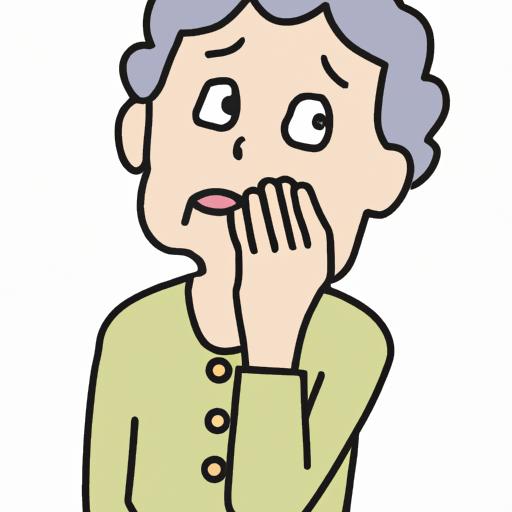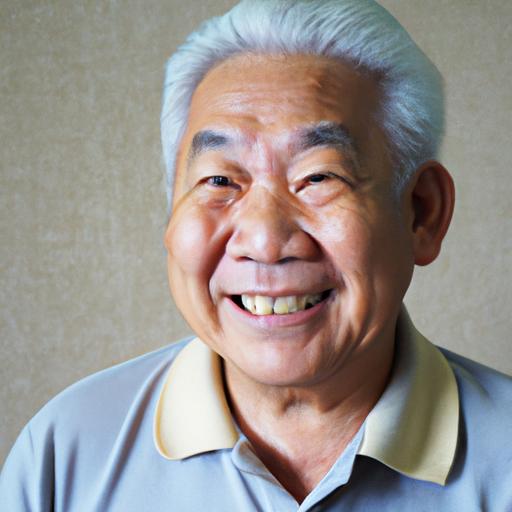Discover the significance of oral care in the elderly. Learn about common issues, practical tips, and the impact on overall well-being. Read more now!
Subtitle: Promoting Oral Health for a Better Quality of Life
Introduction
As we age, it becomes increasingly crucial to prioritize our oral health. Oral care is not only about having a dazzling smile; it plays a vital role in maintaining overall well-being, especially in the elderly. In this article, we will explore the significance of oral care in the elderly, common oral health issues they face, and practical tips to ensure optimal oral health.

Common oral health issues in the elderly can lead to discomfort and concern
Common Oral Health Issues in the Elderly
As we reach our golden years, our oral health can deteriorate due to various factors. It is important to address these common issues to prevent further complications.
Gum Disease and Its Consequences
Gum disease, also known as periodontal disease, is a prevalent oral health issue among the elderly. It occurs when bacteria in the mouth cause inflammation and infection in the gums. If left untreated, gum disease can lead to tooth loss and even impact overall health, as it has been linked to heart disease and diabetes[^1^].
Tooth Decay and Cavities
Tooth decay and cavities are not limited to children. The elderly population is also susceptible to these problems. Factors such as dry mouth, inadequate oral hygiene, and certain medications can contribute to tooth decay. Cavities can cause pain and discomfort, affecting one’s ability to eat and speak properly[^2^].
Dry Mouth and Its Impact on Oral Health
Dry mouth, or xerostomia, is a prevalent condition in the elderly. It occurs when there is a reduced flow of saliva in the mouth. Saliva plays a crucial role in neutralizing acids and aiding in digestion. Without sufficient saliva, the risk of tooth decay, gum disease, and oral infections increases[^3^].

Good oral care promotes a confident smile and overall well-being
The Significance of Oral Care for the Elderly
Proper oral care is essential for the elderly to maintain their overall health and well-being. Let’s delve into the various reasons why oral care should be a priority for this age group.
Maintaining Proper Nutrition and Overall Health
Oral health directly impacts nutrition. As we age, chewing and swallowing may become more challenging due to tooth loss or oral pain. This can lead to a limited diet, lacking essential nutrients. By maintaining good oral health, the elderly can ensure they can eat a balanced diet, supporting their overall health and vitality.
Preventing Oral Infections and Diseases
Neglected oral health can lead to various infections and diseases. Bacteria in the mouth can cause oral infections, such as thrush or oral candidiasis, which are more common in the elderly. These infections can be uncomfortable and interfere with daily activities. By practicing good oral care, such as regular brushing and flossing, the risk of oral infections can be significantly reduced.
Enhancing Social Interactions and Self-Confidence
A healthy smile can boost self-confidence and positively impact social interactions. The appearance of one’s teeth and mouth can greatly influence how they feel about themselves and their willingness to engage in social activities. By maintaining good oral health, the elderly can enjoy a confident smile, leading to improved overall well-being.
Practical Tips for Effective Oral Care in the Elderly
Now that we understand the importance of oral care for the elderly, let’s explore some practical tips to ensure their oral health is well-maintained.
Regular Brushing and Flossing Techniques
Brushing at least twice a day with a soft-bristled toothbrush and fluoride toothpaste is crucial for oral health. It is important to use gentle, circular motions and pay attention to all surfaces of the teeth. Flossing should also be performed daily to remove plaque and debris from between the teeth.
Importance of Dental Check-ups and Professional Cleanings
Regular dental check-ups are essential for the elderly. Dentists can identify and address oral health issues before they escalate. Professional cleanings help remove stubborn plaque and tartar buildup, reducing the risk of gum disease and tooth decay. It is recommended to visit the dentist at least twice a year for routine check-ups.
Proper Denture Care and Maintenance
For those who wear dentures, proper care and maintenance are crucial. Dentures should be cleaned daily with a denture cleaner or mild soap and water. They should be removed at night to allow the gums to rest. Regular check-ups with a dentist are important to ensure the dentures fit properly and are in good condition.
Conclusion
In conclusion, the importance of oral care in the elderly cannot be overstated. By prioritizing oral health, the elderly can maintain proper nutrition, prevent oral infections, and enhance their self-confidence. Incorporating regular brushing and flossing techniques, attending dental check-ups, and practicing proper denture care are all vital for optimal oral health. Let’s encourage our elderly loved ones to embrace good oral care practices and enjoy the benefits of a healthy smile.
Remember, oral care is not just for the young. It is essential for everyone, regardless of age. Let’s prioritize oral health and ensure a better quality of life for our elderly population.
Click here for additional tips and guidance on oral care practices.
[^1^]: Source: American Dental Association – Gum Disease and Heart Disease – https://www.ada.org/en/press-room/news-releases/2016-archive/february/new-study-shows-gum-disease-may-be-linked-to-heart-disease
[^2^]: Source: National Institute of Dental and Craniofacial Research – Older Adults – https://www.nidcr.nih.gov/research/data-statistics/tooth-loss/older-adults
[^3^]: Source: Mayo Clinic – Dry Mouth – https://www.mayoclinic.org/diseases-conditions/dry-mouth/symptoms-causes/syc-20356048






